Innovative competition puts CSU students in the spotlight
by Griffin Moores | March 9, 2017 10:56 AM
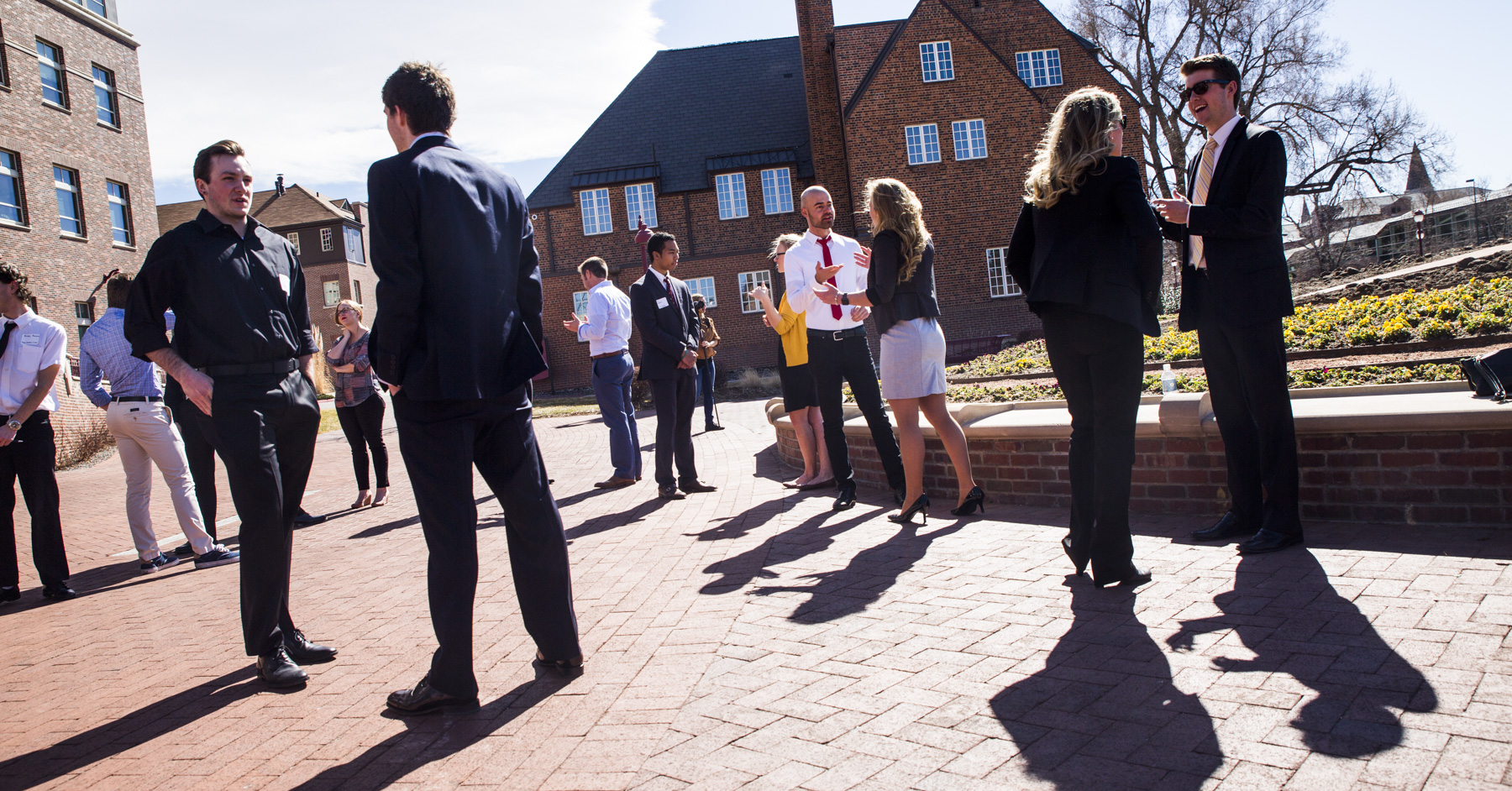
A multi-discipline approach to business and well-being
A toxicologist, a computer scientist, a philosopher, and a businessman walk up to a breakfast bar.
It’s not the start to a joke that ends with a three-word-punchline, but the beginning of one Colorado State University team’s journey to solve a business design challenge that encouraged the graduate and undergraduate students to push the way they thought about approaching complex problems.
The DisCOver Challenge, hosted by University of Denver, brought students together from across Colorado to learn about design thinking, while providing a place to put the skills to work. The human-centered method for solving problems is driven by rapid ideation, the desire to collaborate and innovate, and lots of Post-It notes.
The problem everyone was tasked with solving was clear: Physical health and financial well-being have become increasingly interwoven, but how can services be tailored to improve both together?
So the newly formed team Uni4 – Michael DeMatteo, BS business administration, Katherine Li, MS toxicology, Gregory Poisson, BS computer science, and Jennifer Gonzales, BA philosophy and religion & BS business administration – got to work.
“We had such a diverse group and we didn’t know if that would actually come out to benefit us or not,” said Gonzales.
But the more they worked together, the more the team members started seeing their skills building atop one another’s.
“Having different backgrounds but similar levels of maturity really helped,” said Poisson, allowing them to see concepts from different perspectives.
“I think more often than not that ended up being our saving grace.”
Putting in the work
Meeting in the Morgan Library late into the evenings over the course of a month and squeezing project research into narrow time slots between midterm study sessions, the team slowly chipped away at developing a solution to improving people’s health and finances.
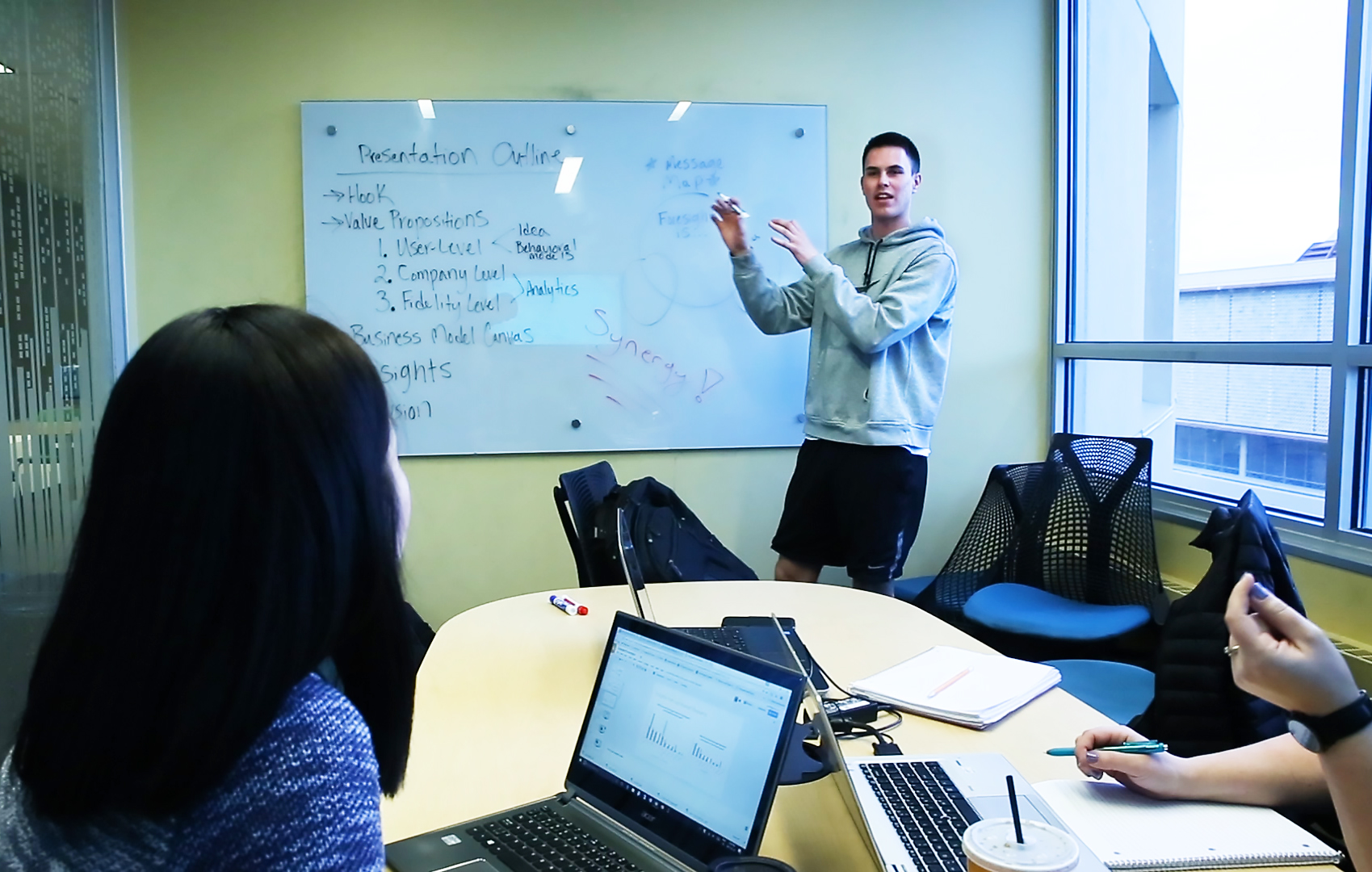
The group conducted interviews at retirement events and investing seminars to gain insights, posted surveys across social media for their friends and family and compiled the data to gain a broader understanding of what people were looking for in how to invest for their futures. The team wanted people to not just be able to save up cash, but find a way to bank happiness, leading them to create the model for Foresight, a web app.
The program employs behavioral economics, and the tried-and-true jar method of saving, to determine what parts of people’s lives they want to invest the most time and money into and set goals based on that information. Foresight then couples individuals’ preferences with wide swaths of data to give employers insight about how to deliver better benefits to their employees, identifying what needs are the greatest, from 401ks to mental health.
At the same time across campus, another CSU team, “Business for Good”, made up of Global Social and Sustainable Enterprise MBA students, was brainstorming its own project.
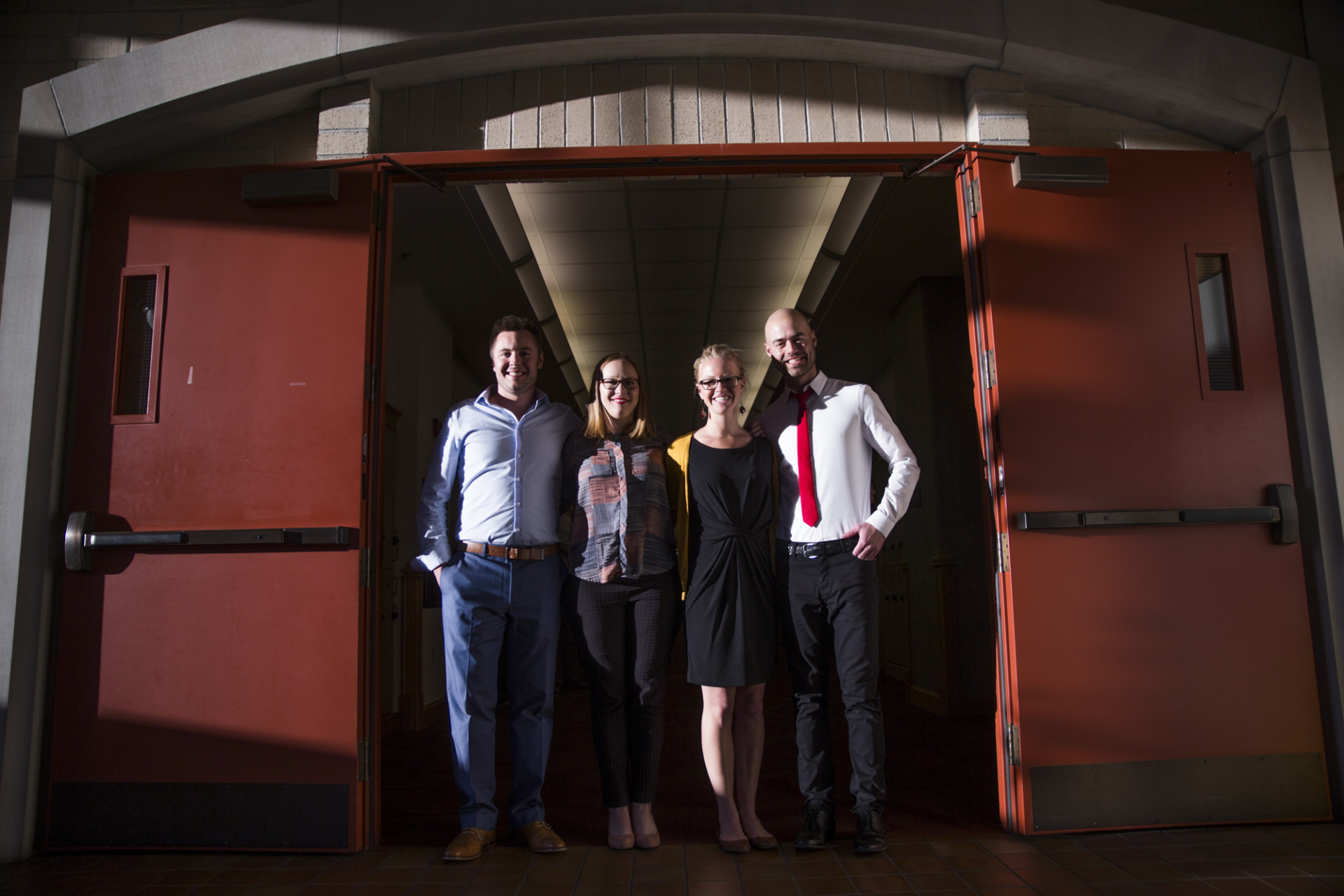
From plan to prototype
The master’s candidates came to the challenge with experience developing lean startup plans, testing ideas, and completing in-depth interviews to tailor final products, but had never gotten as far as the prototype stage.
“What was fun about what they had us do was that they really encouraged us to just come up with a million wild ideas and not place judgement on those ideas, and build that minimum viable concept,” said Hannah Holden, an MBA student who came to CSU after serving as an intelligence analyst in the U.S. Marines and spending time working in financial services.
One of her teammates, Montana Williams, laughed as he recalled a story of how fast their team started moving forward.
“We had come up with an idea and we were going with it – it was this calendar – and I literally left the room for two minutes to get a drink of water and I came back and they were like, ‘Actually, we’re on this one now,’” he said.
Williams studied horticulture as an undergraduate and has spent his career working in botanic garden management before coming to the MBA program, “so this was very different, exploring healthcare.”
However, students point to one of the empowering parts of the project being the ability for them to develop expertise in specific areas through deep research, and then putting that knowledge to the test in front of judges and peers.
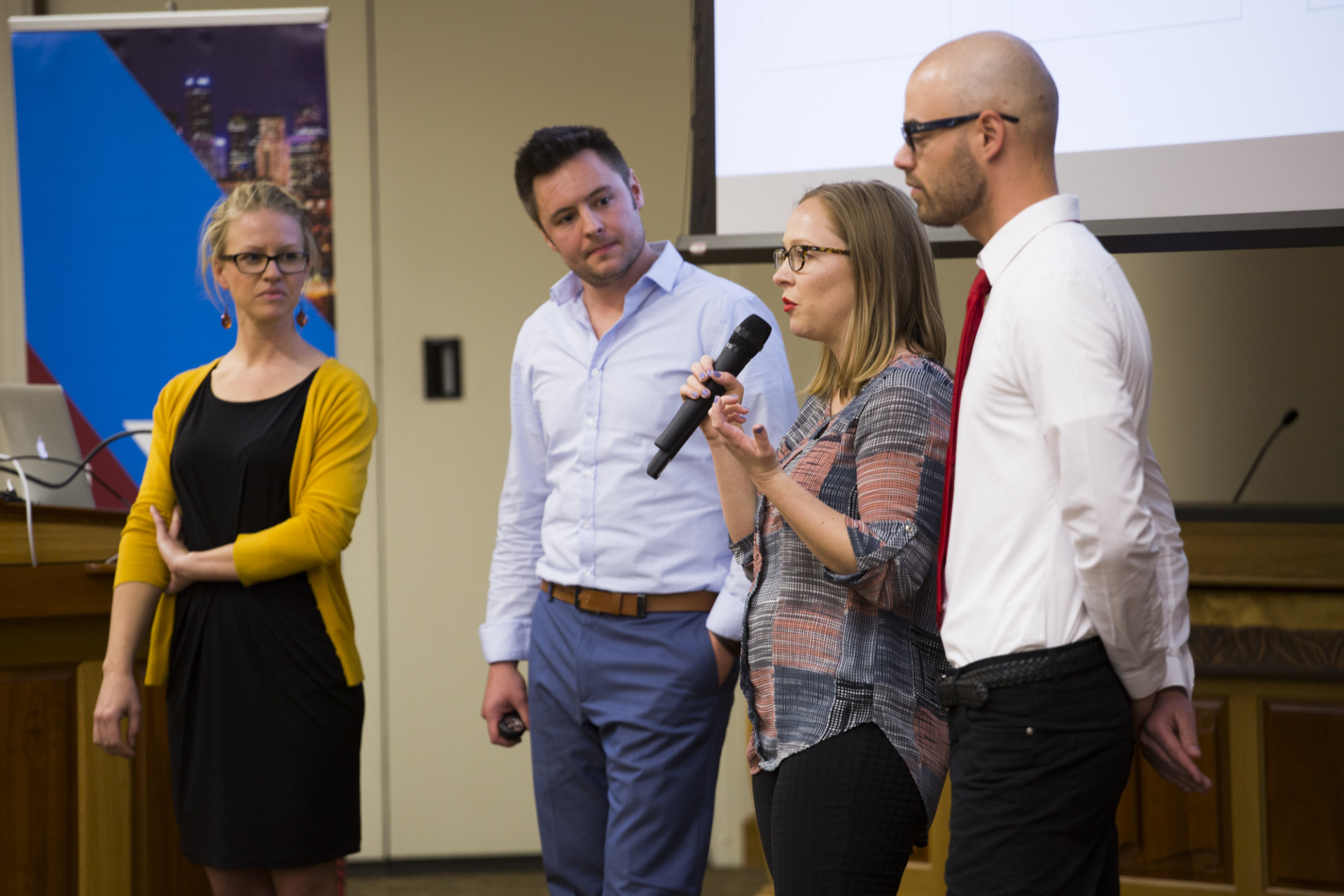
Business for Good’s venture took aim at helping transition people who weren’t saving to start putting money into a short-term account that could cover medical expenses, while at the same time preparing them to explore longer-term financial strategies – something they saw a lot of their millennial peers shying away from.
To address what they saw as a lack of personalization and convenience in healthcare and investing, they developed an à la carte medical coverage selection process connected to a round-up savings model that would deposit leftover change from financial transactions into a savings account.
“We identified this theme of shame among people in our age group, in terms of not knowing how to save for health emergencies, but also not knowing how to invest or, like, really handle their money effectively,” Williams said.
So they structured their prototype around combatting that feeling, even swapping out the term “investing” for “stash your cash” on their website after realizing the more standard terminology kept people from clicking on the link.
“The word leaves a bad taste in millennials’ mouth,” Williams said.
Challenge day
Heading down to Denver this past weekend, the two teams were ready to put their ideas up against roughly a dozen other groups.
After the first round of presentations, including a rapid-fire elevator pitch, the students blew off some steam with ice breaking activities and paper airplane toss waiting for the first round of judging results to be announced.
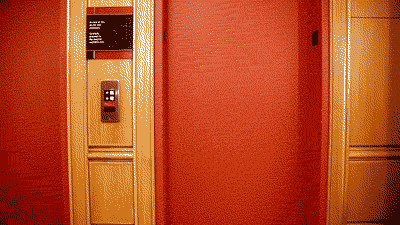
“We came into this afternoon really wanting to make it into the final round … You just had to wait and see, and we waited for so long, and we didn’t know what was going to happen,” said Gonzales with team Uni4.
So when they finally heard their names called out in the Sturm College of Law auditorium at the University of Denver they were ready to deliver.
“To go up and really fight for it, that was one of our biggest goals going into today,” Gonzales said. “I felt like I was already a winner at that point.”
And less than an hour later their whole team felt the same way.
“To hear our name called for third place,” said Gonzales as Li chimed in, “Yeah, that was just…”
“Really great,” finished Gonzales, the two teammates bubbling with laughter.
As the group stood in front of their peers and the judges who had just awarded them $2,500, Suzanne Hamill, vice president of design thinking at Fidelity Investments, stepped forward to address the team.
“We really thought you were moving us from kind of a money firm into a mental health and happiness firm, and we really liked how you were moving in that direction,” said Hamill. “We really haven’t seen that concept come to life the way that you guys have brought it to life.”
It’s not over until…
As the judges worked their way up to the first-place announcement, team members on Business For Good was still holding out for the chance their name would be called.
A drum roll started as a $10,000 check was rotated into view. Five seconds later Williams’ jaw dropped, his team member Meghan King whispered “shut up” under her breath, and the other two Global Social and Sustainable Enterprise MBA students Charlie Warden and Hannah Holden, laughed as they stood up together. The group had just heard the three words they’d been waiting for: “Business for Good.”
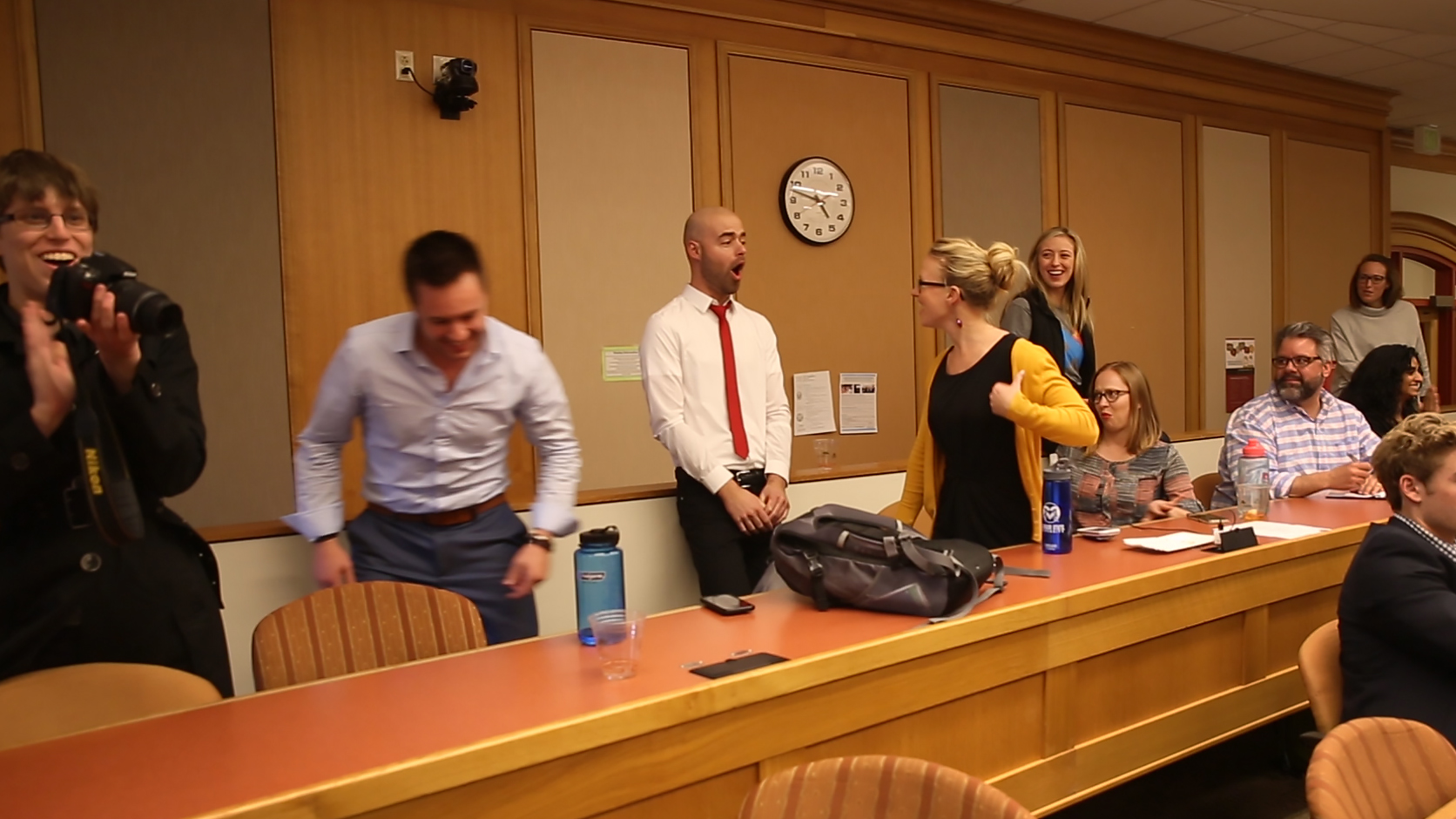
Back on campus
After the weekend, the buzz from Business for Good’s victory hadn’t quite worn off. The students greeted each other warmly as they walked through the doors of the College of Business, celebrating with their teammate Estefanía Pihen González – “I was like texting them all day, ‘Good luck!’” – who was unable to attend the competition.
It hadn’t even been 48 hours but they all knew how they were going to stash their cash: lightening the load of tuition, paying rent, an even investing in one of the students’ startup company, Tersa Inc.[3], which is working to produce an in-home clothing steam cleaner.
But the group, and all of the students who competed, took home more than money. They took home a stronger ability to connect as part of a team to deliver results, and they took home a structured system for creative problem solving in a way that meets their needs.
“I don’t want to be creative in a creative field,” said Li, the aspiring toxicologist with Uni4, “I want to be a scientist and then be able to work with other people and design something really great.”
And through applying strategic business thinking, it’s something that she, and her fellow rams, are now equipped to tackle.
Although cash is always nice, sometimes the rewards of hard work aren’t immediately seen. Mark Kent, a Silicon Valley veteran and director of the Institute for Entrepreneurship at CSU’s College of Business, shares a little insight on how he sees students building job security.
- Global Social and Sustainable Enterprise MBA: https://biz.colostate.edu/Academics/Graduate-Programs/Master-of-Business-Administration/Global-Social-Sustainable-Enterprise-MBA
- Global Social and Sustainable Enterprise: https://biz.colostate.edu/Academics/Graduate-Programs/Master-of-Business-Administration/Global-Social-Sustainable-Enterprise-MBA
- Tersa Inc.: https://www.tersasteam.com/
Source URL: https://source.colostate.edu/bridging-health-wealth-gap-using-business/
Copyright ©2024 SOURCE unless otherwise noted.